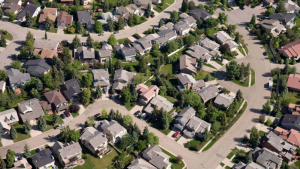
Alberta residents brace yourselves for a significant financial shift as the province implements new regulations impacting both homeowners and electric vehicle (EV) owners. Finance Minister Nate Horner’s recent budget announcement, dubbed as a “beer budget with an eye to the future,” outlines changes that will affect the wallets of many Albertans. Let’s delve into the details of the update, particularly focusing on the introduction of a Land Titles Registration Levy and a new tax for EV owners.
One of the prominent changes unveiled in the budget is the introduction of a Land Titles Registration Levy. This levy, set at $5 per $5,000 of property value, is slated to replace the existing variable land title fees. For instance, for a home purchase valued at $450,000 with a 10 percent down payment, the levy would amount to $955, marking an increase of $553.50 compared to the previous fee structure. While these adjustments are aimed at streamlining fees, they are anticipated to add an estimated $45 million in revenue for the fiscal year, with a projection of $91 million for the following year.

In addition to the changes in land title fees, the budget introduces a new tax targeting EV owners. Starting January 2025, EV owners will be required to pay the province $200 annually. Justification for this levy stems from the argument that EVs, being heavier than traditional internal combustion engine vehicles, contribute to increased wear and tear on provincial roadways. Minister Horner stated that since EV drivers do not pay fuel taxes, this tax would serve as their contribution towards road maintenance and public services. Despite the rationale provided by the government, the imposition of this tax has elicited mixed reactions from the public, particularly from EV owners in Calgary who expressed surprise and dismay at the additional financial burden.
The new EV tax has not been without criticism. The Canadian Taxpayers Federation (CTF) criticized the government’s decision, arguing that it contradicts promises of tax reductions and impedes efforts to incentivize EV adoption. Opposition leader Rachel Notley echoed these sentiments, highlighting concerns over the government’s approach to emissions reduction and fee increases. However, proponents of the tax, including Hyundai dealer principal Lief Sorenson, argue that it is a necessary measure to ensure equitable contributions towards road maintenance.
As Alberta gears up for these significant changes in land title fees and the introduction of a new tax for EV owners, residents are left evaluating the implications on their finances and the broader economic landscape. While the government asserts the necessity of these measures for revenue generation and infrastructure upkeep, debates surrounding fairness, affordability, and the promotion of environmentally friendly practices continue to unfold. With further details expected to emerge in the coming months, Albertans remain vigilant, navigating through this evolving fiscal landscape.
While these changes aim to address various economic and environmental concerns, their implications and effectiveness remain subjects of ongoing debate and scrutiny within the province. As Albertans adapt to these new financial realities, the long-term impact of these measures on both individuals and the broader economy will become increasingly apparent.
Hi! I’m Erin Crocker. I’m a real estate lawyer with over 10 years of experience in Alberta and British Columbia real estate law. I love technology and efficiency. I’m on a mission to create a modern, digital closing experience for buyers and sellers through technology, transparency and sharing knowledge.